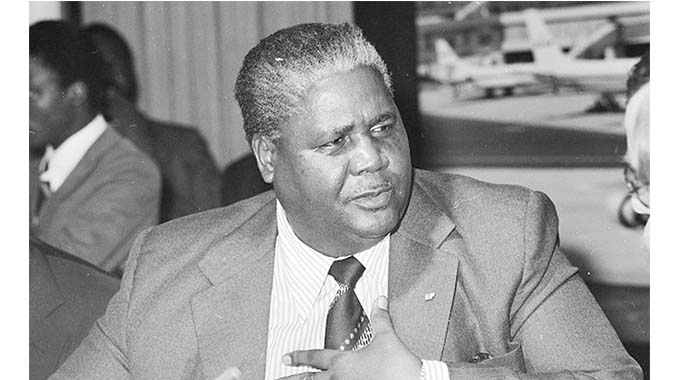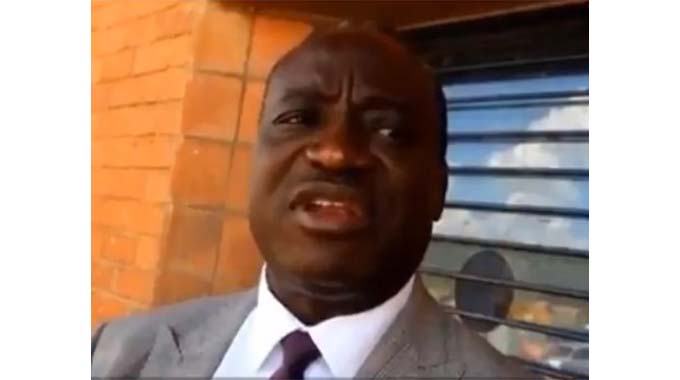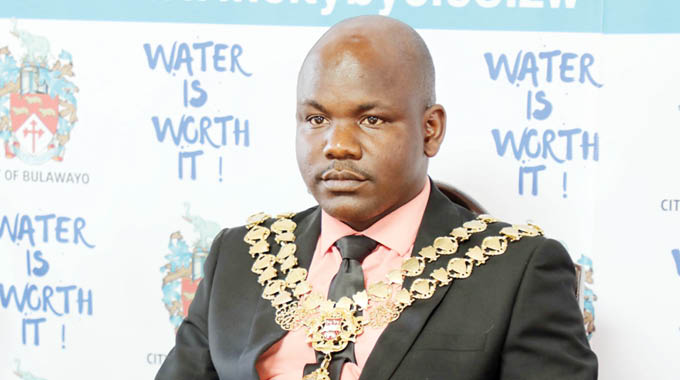COMMENT: Let’s honour Dr Joshua Nkomo by fulfilling his vision

Father Zimbabwe, Umdala Wethu, Big Josh and Chibwechitedza.
We knew and still know the late former Vice-President, Dr Joshua Nkomo by the foregoing nicknames. He was adored as a father figure of the nation, a brave, strong man not to be messed with, hence the nickname Chibwechitedza. Literally, that moniker means a slippery stone and figuratively, someone who is difficult to take down, often in war situations or any difficult circumstances.
As a trade unionist working for the Rhodesia Railways (now National Railways of Zimbabwe), Dr Nkomo played a leading role in organising the first general strike in the country in 1948. The strike was largely against white Rhodesian racism at the workplace but he and his colleagues knew that the unfair labour practices were just part of a range of injustices wrought on the black majority by the ruling class of that time.
They knew that in the long run only genuine democracy and Independence would effectively deracialise the workplace and by extension, the entire Zimbabwean society.
He was also involved in some of the earliest political parties agitating for Independence from British colonial misrule in the early 1950s, among them the Southern Rhodesia African National Congress, National Democratic Party, later Zapu in the 1960s when nationalists further hardened their tactics against the Rhodesians. Zapu and its military wing Zipra, under the able leadership of Dr Nkomo fought the armed struggle alongside Zanu and Zanla against the racist regime of the day, their efforts delivering Independence on April 18, 1980.
Dr Nkomo was in the first post-Independence Cabinet but regrettably left due to the civil disturbances of 1982 to 1987. He, however, signed the Unity Accord representing Zapu, the late former President, then Prime Minister, Cde Robert Mugabe representing Zanu on the other side of the agreement. Post-Unity Accord, Dr Nkomo took the position of Vice-President and served in that office until his death on July 1, 1999, aged 82.
We, thus marked 21 years of his death yesterday.
You can’t talk about the making of Zimbabwe and its post-Independence development without mentioning Father Zimbabwe, Umdala Wethu, Big Josh and Chibwechitedza.
“We urge Zimbabweans to reflect on his teachings and his vision for Zimbabwe,” Dr Nkomo’s son Sibangilizwe told us on Tuesday.
“People should listen to his voice that we believe is still relevant. Dr Nkomo always called for people to be totally free. We have the potential to progress more than many countries if we follow his teachings and it’s not late to follow his teachings. He always said Zimbabweans should unite for the development of the nation regardless of their political affiliation. It is unfortunate that the country is so polarised that we can’t agree on anything.”
Not many people command so much public respect as Dr Nkomo did. He was much-loved as the father figure of the country. That is why the country was thrown into strictly national mourning when he died, and why the National Heroes’ Acre attracted what we rate as its largest ever crowd of mourners on his burial on July 5, 1999.
We honour him most deeply but a little sad that the 21st anniversary of his death was muted by Covid-19. We salute him for being at the forefront of prosecuting the liberation struggle, uniting the country after the Unity Accord and promoting its full-spectrum development. Only brave, patient, persistent, consistent and visionary figures like Dr Nkomo could do that for their country.
Also, he left a legacy of hard work. Dr Nkomo knew the criticality of hard work, which is why after Independence he founded a number of businesses and investments that are still in place. He had particular interest in agriculture. Nuanetsi Ranch, that enormous block of land stretching from Matabeleland South into southern Masvingo belongs to a trust that Dr Nkomo led, the same with investments in coffee production in Manicaland. He sought to process fruit and vegetables on a large scale at Norton and Esigodini, among other places.
He said at some point a few years before his demise:
“Nxa ufuna imali phendulela ibala elithi lima’’. (If you want money (mali) read in reverse the Ndebele word for farming (lima). He knew that all the wealth was in agriculture, was in the land. So the land reform programme that started a few months after his departure was in line with that vision. We urge all Zimbabweans to continue to be guided by Dr Nkomo’s life and legacy.











Comments